CP2112 debug board USB to I2C Module
The CP2112 debug board USB to I2C Module offers a fully integrated USB-to-SMBus bridge controller that includes a USB 2.0 full-speed function controller, transceiver oscillator, and eight GPIO pins. With a user-friendly GUI-based configurator, all customization and configuration options are easily accessible. Complex firmware and drivers are not necessary for standard HID class devices, making the CP2112 a convenient solution for fast USB connectivity with minimal development effort.
The CP2112 debug board USB to I2C Module utilizes the USB HID device class, which is readily compatible with the majority of operating systems. There is no need to install a specialized driver for this device. Instead, host applications can communicate with the CP2112 using interface libraries from Silicon Labs. Additionally, the interface specification for this device is accessible for creating an API on any operating system that supports HID.
The CP2112 debug board USB to I2C Module SMBus interface is equipped with the essential SDA and SCL signals for smooth SMBus communication. It offers various configurable options such as clock speed, read/write time, retry counter timeout, SCL low time, and a 7-bit device address. Please note that the CP2112 will only acknowledge its designated 7-bit device address and will not respond to any read/write requests. Keep in mind that external pull-up resistors are necessary for both the SCL and SDA signals.
The device boasts a total of eight GPIO signals, all of which can be controlled via USB. These signals offer versatile functionality as they can be configured as either Input or Output, and also have the option of being set as Open-Drain or Push-Pull. Additionally, three of the GPIO signals have the added feature of being able to support alternate functions, such as a customizable clock output that runs at 48 MHz.
The device offers support for varying input/output interface voltages, down to 1.8 V, through its designated VIO pin. Additionally, it also includes a frequency range up to 94 kHz and an option to toggle the TX and RX LEDs.
We have found that I remembered
- The integrated circuit includes an on-chip power-on reset circuit and a voltage regulator that provides a 3.45 V output.
- In adherence to the 2.0 version of the USB specification, operating at a full speed of 12Mbps.
- The SUSPEND and /SUSPEND pins provide the USB suspend status.
- Integrated 194-byte one-time programmable ROM for storing customizable product information
- The CP2112 debug board USB to I2C Module has a configurable clock speed and uses a 7-bit value as its slave address. Additionally, it has a 512-byte data buffer for SMBus communication.
- The HID to SMBus libraries API for Windows, Mac, and Linux offers open-access interface specifications that enable quick application development.
- The 8 GPIOs have the ability to be set as input or output, and can either be open-drain or push-pull. They also offer a configurable clock output for external devices with a range of 48MHz to 94kHz, and are capable of switching LEDs while performing read/write operations on the SMBus.
- The CP2112 debug board USB to I2C Module measures 29.5mm*21.3mm and features two M3 mounting holes as well as a MicroUSB female port.
- There are a variety of ways in which these products can be utilized, such as for portable control, through a USB dongle, or for data logging purposes.
- The CP2112 debug board USB to I2C Module is a USB-to-SMBus bridge controller that offers a seamless integration of essential components. With its USB 2.0 full-speed function controller, USB transceiver oscillator, and eight GPIO pins, this device delivers efficient connectivity. Its user-friendly GUI-based configurator allows for easy customization and configuration options. Moreover, unlike standard HID class devices, the CP2112 eliminates the need for complex firmware and drivers. As a result, users can enjoy fast USB connectivity with minimal development effort.
- The CP2112 debug board USB to I2C Module utilizes the commonly used USB HID device class, widely recognized by operating systems. No additional driver installation is necessary for this device. To communicate with the CP2112, host applications can utilize interface libraries from Silicon Labs. Furthermore, the interface specification for the CP2112 is accessible to facilitate API development on any HID-compatible operating system.
- The CP2112 debug board USB to I2C Module SMBus interface contains the essential SDA and SCL signals for SMBus communication, and it offers various configuration options. These include the clock speed, read/write time, retry counter timeout, SCL low time, and a 7-bit device address. However, please note that the CP2112 will only acknowledge the assigned 7-bit device address and will not respond to any read/write requests. Additionally, external pull-up resistors are necessary for proper functioning of the SCL and SDA signals.
- In addition to its other capabilities, the device has a total of eight GPIO signals. These signals can be managed through USB and have the option to operate as either Input/Output or Open-Drain/Push-Pull. Furthermore, three of the GPIO signals offer alternate functionality such as a configurable clock output at 48 MHz.
- The device comes equipped with a frequency range of 190 kHz (TX and RX LED signal voltages switch between 75 kHz to 94 kHz) and includes a VIO pin for support of I/O interface voltages as low as 1.8 V.
Characteristics of CP2112 debug board USB to I2C Module:
- The integrated power-on reset circuit and voltage regulator on the chip provide a 3.45 V output.-Meets the USB specification 2.0 standard, operating at full speed (12Mbps).
- Status of USB suspend using the SUSPEND and /SUSPEND pins
- Includes a 194-byte one-time programmable ROM for saving personalized product details.
- The CP2112’s slave address is a configurable 7-bit value, used for communication with the SMBus. This device also features a data buffer of 512 bytes and a configurable clock speed.
- The HID to SMBus libraries API for Windows, Mac, and Linux allow for rapid application development using open-access interface specifications.
- The GPIOs have the flexibility to be configured as input or output, as well as open-drain or push-pull. They can also provide a configurable clock output for external devices with a frequency range of 48MHz to 94kHz. Additionally, they have the ability to switch LEDs during SMBus read and write operations.
- The dimensions of the module are 29.5mm*21.3mm, and it includes two M3 mounting holes and one MicroUSB female port.


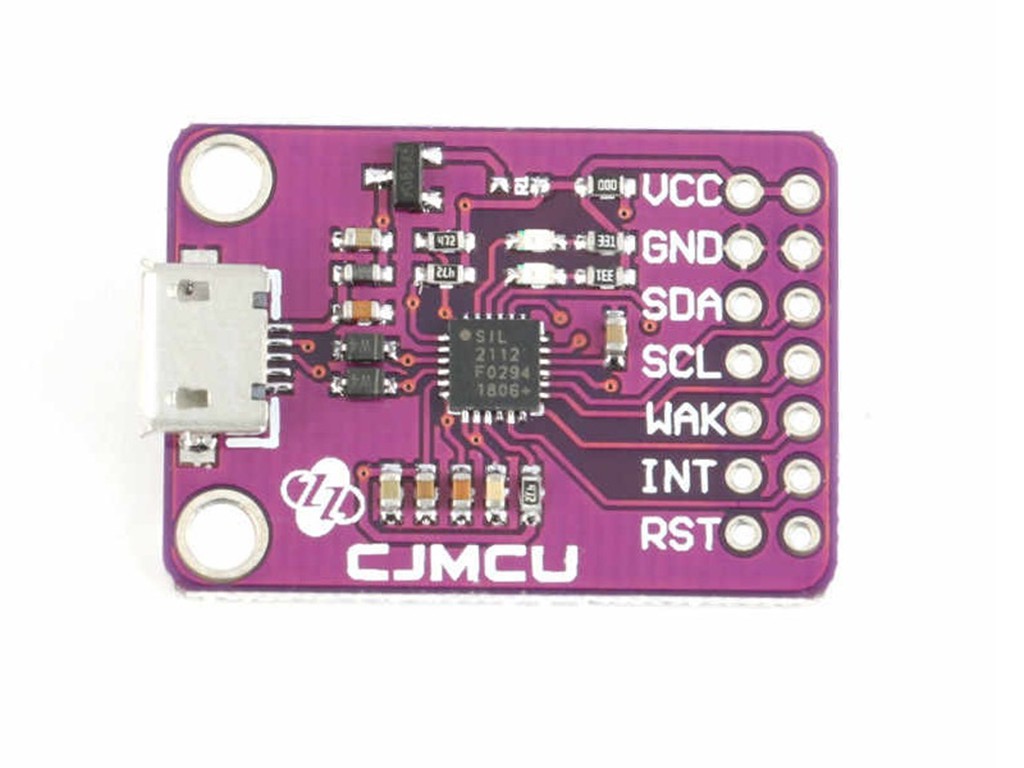
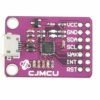
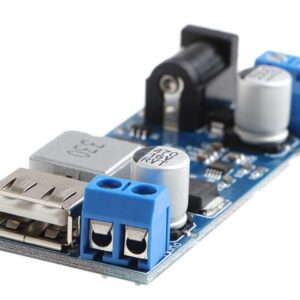
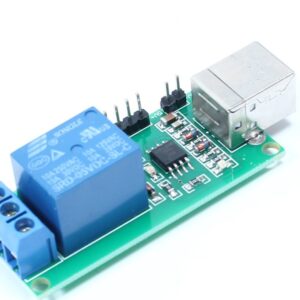
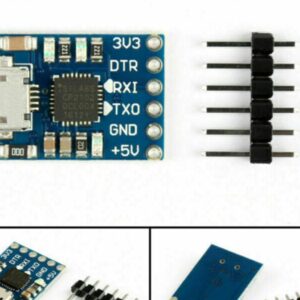
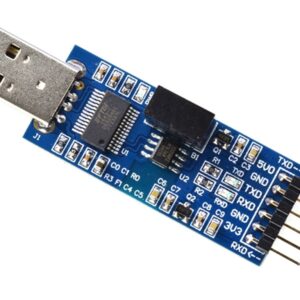
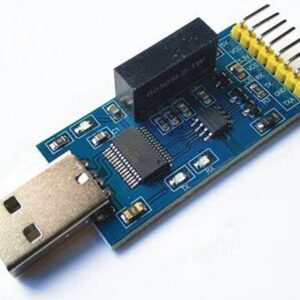
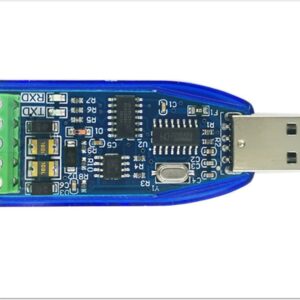
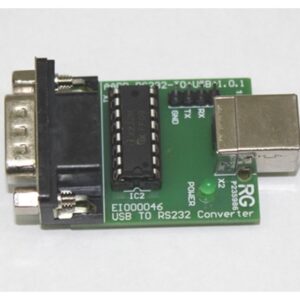
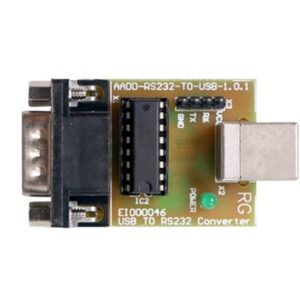
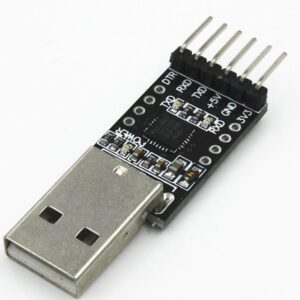
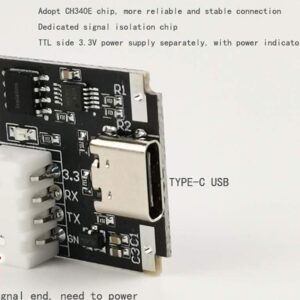
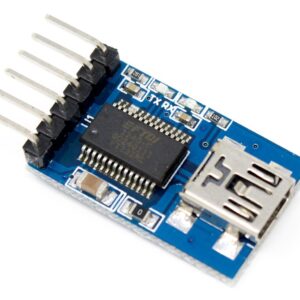
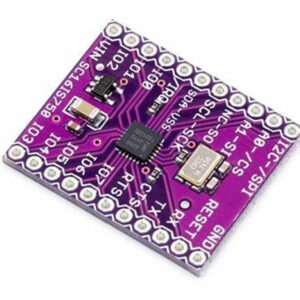
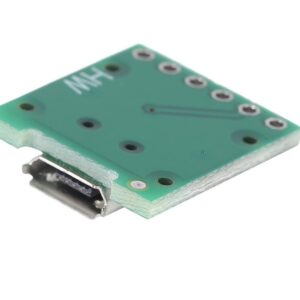
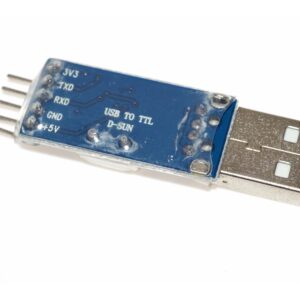
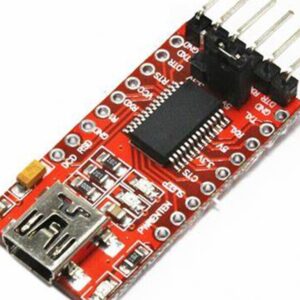
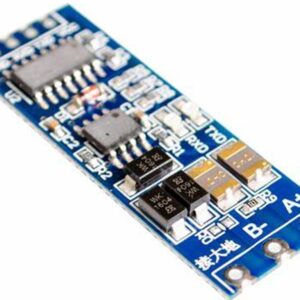

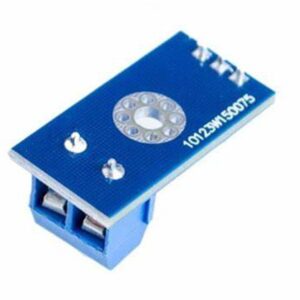
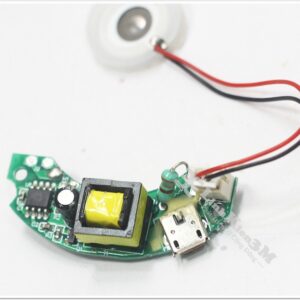
There are no reviews yet.